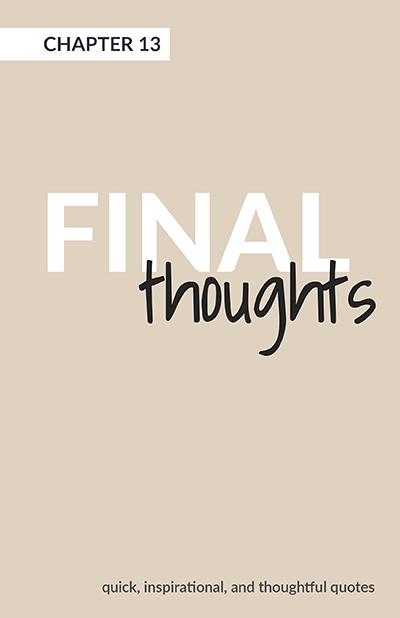
A birth mother said, “I got some great advice from an adoptive mom once. We were talking about how unfair life can be. My dad died 3 years ago, I placed my son almost a year ago and when she said “man, I’m sorry to hear that.” I found myself saying “it’s okay!” And she was very quick to correct me and say “no, it’s not okay. And it’s okay that it’s not. It sucks. It’s alright to say life sucks.” From then on, I’ve stopped lying to myself and everyone and instead of acting like everything is okay all the time. I’ve found myself feeling okay about saying “it sucks.”
And adoptive mom said, “Adoption is messy. It’s not a good/bad or positive/negative binary, because it’s too complex to be just one thing all the time. Talking about hard things does not make us anti-adoption. It makes us human. We can talk about the hard things and learn to grow and be better. We can not like a lot of things about adoption and still know there are situations where it is an outcome that will benefit the child-knowing that there is no outcome where there will not be trauma.
Trauma does NOT mean damaged or broken. It literally means “a deeply distressing or disturbing experience.” And adoption is that. It does cause stress. What we do to validate and acknowledge that may help relieve that stress for some. That is why learning about and talking about the hard parts is so important.”
Another adoptive mom had this advice about learning from all members of the triad, “Helping me learn from all the views to better help our daughter and teaching me how to be a good mom on the journey of sharing motherhood with someone else.”
A birth mother said, “I feel like love and hate in adoption don’t have to be mutually exclusive. They can exist in the same space because they aren’t opposites, they are actually quite similar emotions in terms of the passion behind them. The one thing I will never feel about my journey as a birth mother is indifference, but I have bouts of extremes of both love and hate in my own story. And that’s okay. They can exist, for me, simultaneously without taking away from each other.”
An adoptee said, “I have learned many my triggers and how to deal with them. I’ve also learned to recognize when other people are triggered and try to help them when I can. It has been such a great help.”
One piece of advice I always give to those hoping to adopt is to go to a birth mother panel. Listen to as many birth moms as possible to get insight. Make sure to hear from those that have placed, not only those that placed just a few years ago, but decades ago. Your heart will grow after listening to these amazing women and it will make you a better parent to your future child.
One birth mom had this advice, “It has been 12 years for me since I placed. Time heals-or lessens the sting-that’s the best thing I can tell someone. It takes a lot of time to heal that kind of pain, but the healing does happen. Also, I originally wanted a closed adoption because I felt that was the only way to get past the pain, but I later changed to open, and that was the best decision ever. I felt like with a closed adoption there would always be the question, is he okay? But with open I know the answer. And I know he loves me and he’s happy.”
Finding support is so important! A birth mom said this about finding her people, “My best advice is FIND SUPPORT! There is no way I would be where I am today without my fellow birth mom’s or the adoptive couples who have shown me love when I didn’t get it from my own. Having other women to talk to who just get it is priceless and healing in its own way that can’t be found anywhere else.
I also recommend largely to allow yourself to “go on”. Not move on, but “go on.” We are allowed to be happy. We are allowed to find joy and happiness in life. Live the best life you can and become the person you want to be for the child you placed. Of course, you will still grieve and have days of sorrow, but don’t let them overcome you. Find purpose beyond your adoption story but always keep it close.”
Have you ever had someone tell you how you should feel in your situation? A birth mom had this to say about that, “Your story is your story. Nobody has walked in your shoes. Ignore the people who love to say ‘what I would have done is….’. It is easy to be armchair quarterback. Acknowledge your feelings. Whatever they are. They are not right or wrong. They just are. Don’t let anyone tell you how you should feel. It is ok to move forward. Don’t feel like you have to justify the adoption. You do not owe anyone an explanation about anything.”
Being present in all times of your life is important. An adoptive mom said this, “My best advice to adoptive couples is to live with joy now. Be content at every stage in your adoption and do what feels right. There were a few years that I just wasn’t feeling the need to “search” for our next one, then all of a sudden, the desire was back strong and I was fueled and refreshed because of the break. We can’t control when we are chosen, but we can control what we choose to pursue while we wait.”
Creating a real big extended family is key to healing for everyone. A birth mom said, “Honestly what has helped me the most was the relationship I have with my birth son and his family. We worked hard to make our open adoption work. We always put the child first in the beginning. We were honest and compassionate with each other. I was understanding that life happens. If a visit had to be canceled, I forgave them and they always rescheduled. After a couple of years, we just grew to be a family. Keep your promises on both sides. My birth son’s parents are a big part of my support system. They have celebrated along with me not only my birth son’s accomplishments, but my own. Be open and love one another completely. Don’t hold anyone on a pedestal. My birth son’s mom just told me that without my family, she wouldn’t have family nearby. Becoming family helped me tremendously. Their love helped make me stronger.”
“Somethings I’ve learned or been told since becoming a birth mom is you can be grieving and still be in a healthy place. Because grieving is normal and natural. It’s ok. Get help when you need it, but don’t feel bad for how hard or long you grieve. Bad days will not just happen in the first 6 months or so. It’s a life-long thing. And others may not know, and therefore not see your reason for your bad days. But whatever they think – you have to know yourself that IT’S OK TO BE SAD. And it’s ok to be happy. To forget for a moment. To need a break from feeling sad. You’re a person, you’re human, and you’re experiencing ups and downs, and THAT’S OK.” This advice is also for you adoptive parents and adoptees out there. It is ok to be sad. It is ok to be happy. Say that again.
As we end this book, my hope is that you come with a lot of new perspectives, a lot of new questions and the desire to learn more. If you decide to adopt, always make sure to center the adoptee and what is best for them in everything you do.
Ask questions. Get support. You are not alone.
